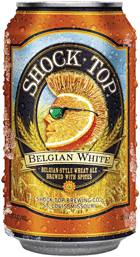The Michigan Liquor Control Commission has reversed its decision banning Flying Dog Brewery’s Raging Bitch Belgian-Style India Pale Ale from the state.
In a press release, the company explained the move came three weeks after Flying Dog’s first hearing on the case before the federal court in Grand Rapids. Flying Dog argued that the original decision by the Michigan Liquor Control Commission violated the company’s First Amendment rights and sought a preliminary injunction to lift enforcement of the commission’s ban while waiting for a final judgment from the court. Michigan reversed its decision to ban Raging Bitch in the state before the court ruled on Flying Dog’s request for an injunction.
“The Michigan Liquor Control Commission’s involuntary reversal of opinion is a victory for craft beer,†Flying Dog CEO and general partner Jim Caruso said for the press release. “Now, the great people of Michigan are no longer denied access to Raging Bitch Belgian-Style IPA, Flying Dog’s top-selling beer. But the fight for First Amendment rights in Michigan continues to rage on.”
Although the commission approved the sale of Raging Bitch in the state, Flying Dog will not drop its First Amendment lawsuit. Flying Dog originally filed suit in U.S. District Court on March 25 not only to overturn the commission’s regulation banning Raging Bitch, but to establish that allowing the commission to ban any beer label they simply find offensive would be unconstitutional. The suit seeks to recover damages from the loss of Flying Dog sales under the rule.
The controversy began in September 2009, when Flying Dog Brewery applied for a license to sell Raging Bitch in Michigan. The Michigan Liquor Control Commission barred the sale of Raging Bitch, stating the beer’s label is “detrimental to the public health, safety and welfare.”

 The Wisconsin Brewers Guild is asking state residents to join others in sending a message to Governor Walker to veto budget language related to microbreweries. The language in question, known as Motion 414, would take away small brewers’ abilities to distribute each other’s beers and own and operate their own taverns.
The Wisconsin Brewers Guild is asking state residents to join others in sending a message to Governor Walker to veto budget language related to microbreweries. The language in question, known as Motion 414, would take away small brewers’ abilities to distribute each other’s beers and own and operate their own taverns. Shock Top Belgian White is available in cans for the first time today.
Shock Top Belgian White is available in cans for the first time today.